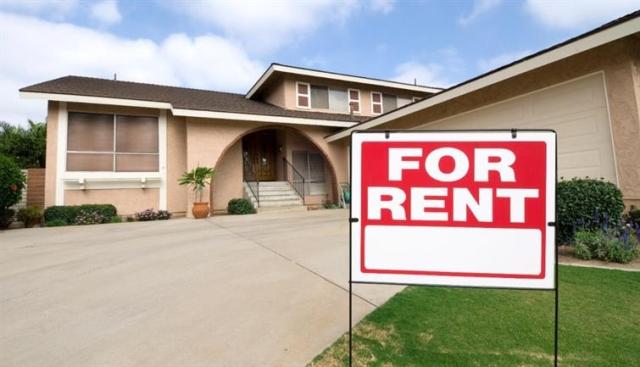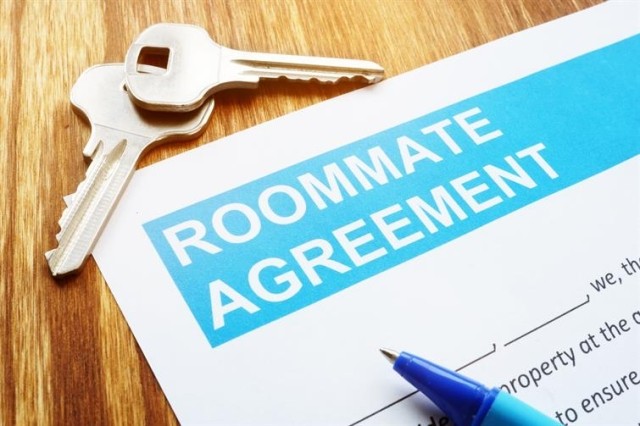One day, my daughter will move out and become a renter.
The responsibility to find and secure one’s own housing is a rite of passage, and it’s my job to prepare her for that day.
As a father, I realize that she will never learn to lead others until she knows what it means to follow.
I believe there is tremendous value in being a first-time renter, learning to manage money and honor a lease contract. A healthy landlord-tenant relationship can be a safe environment to prepare young adults for life’s many challenges.
This is the advice I will give my daughter when she starts looking for rental housing.
DEAR SWEETHEART,
I’ve been a landlord for your entire life. Unbeknownst to you, I review 20-50 rental applications each year.
Though the types of applicants vary greatly, the questions they ask are generally the same.
While some renters ask the “right” questions, they often do not ask them in the most beneficial way.
Since most of the pricing, location, and utility information will likely already be available in the rental ad, I think you should focus on extracting the information that a landlord doesn’t necessarily want to share.
Some questions will reveal more than others, and all landlords have their secrets.
Ask open-ended questions that provide a platform for the landlord to ramble. The more they talk, the more you’ll learn about the property, and the more you’ll be able to read between the lines.
Asking carefully chosen questions will give landlords a chance to explain (or incriminate) themselves, and it can help you discover the not-so-obvious attributes about the property, the landlord, or the contract.

Love,
Your over-protective dad
P.S. If it doesn’t work out, you can always live at home, as long as you walk the dog twice a day.
20 REVEALING QUESTIONS EVERY RENTER SHOULD ASK
1. Can you clarify the rent, deposits, and cost of utilities?
- In case you viewed an outdated listing with a higher price, allowing the landlord to state the current price will ensure you don’t overpay.
- If the landlord tells you a higher price than what was advertised, just point out the discrepancy, and you should get the lower advertised price.
- The cost of utilities will greatly affect the overall cost to live in the unit. Without this variable, you won’t know if you can actually afford the place, maybe until it’s too late. Ask clearly if it's the landlord's or tenant's responsibility to pay utilities.
2. Are there any deposits or non-refundable fees, and what are they for?
- Despite some state laws prohibiting the practice, some landlords will have a non-refundable deposit in the lease.
- At the very least, you’ll know what to expect before signing a lease.
- At best, you’ll be able to go home, research your laws, and determine if the landlord is even allowed to ask for non-refundable deposits or fees.
3. What’s your application process and screening criteria?
- Rather than guessing, encourage landlords to lay out their entire screening process, step by step.
- It will help you set your own expectations, if you choose to apply.
- Clarify any application or screening fees that are mentioned (or not mentioned).
- If a credit report is required, ask if it’s a hard or soft inquiry. If the landlord doesn’t know, it’s probably going to hurt your credit to apply.
4. How soon are you looking to fill the unit?
- This is a great question to ask at the start of your conversation.
- If you won’t be ready to move until June 1, but the landlord is looking for a tenant to start on May 1, then it’s probably not going to work out.
- I’ve had multiple conversations with potentially excellent tenants, except that they weren’t looking to move in when I needed them to.
- It’s a waste of time if the move-in dates don’t match up, so get this figured out early.
5. What’s your ideal lease duration?
- If the landlord is looking for a two-year lease, and you can only commit to a year, then it doesn’t matter how nice the apartment is.
6. What payment methods will you accept for rent?
- Landlords are allowed to designate which forms of payments they will accept, but the best landlords make it easy for a tenant to pay.
- Landlords who only accept cash should be avoided at all costs.
- Online payments are the best way to pay rent (in my opinion), because it allows for automation, security, and convenience for both tenant and landlord.
7. How much interest have you had in this unit?
- If the landlord says that interest has been low, then you should try to figure out why. Perhaps the listing did not include pictures, or maybe it’s priced too high.
- If the landlord lies to your face, you’ll hopefully notice the dishonesty, and realize they’re not trustworthy. Leave immediately.
8. What’s your late fee policy?
- Late fees are typically allowed in every state, but they must be fair and within the state’s limits. Ask how late fees might be calculated.
- Any landlord who says “just pay when you can” is not honoring their own lease agreement, and they should be avoided.
9. What’s your subletting policy?
- A wise landlord will understand that a tenant will occasionally need to move out, and they will respond by allowing the tenant to sublet.
- Generally speaking, if the lease doesn’t prohibit subletting, or mentions exclusive occupancy, then you’ll be able sublet.
- A landlord may require that subletters meet the standard screening criteria, and they can deny unqualified applications.

10. Do you allow early lease terminations and if so, what are the fees?
- Similar to the subletting question, sometimes a tenant needs to break a lease. Life happens.
- A smart landlord will plan for this possibility by providing an early termination clause in the lease.
- Often the fee is two or three months' worth of rent, but sometimes the lease-breaking tenant may be required to continue paying rent until the landlord finds a replacement tenant.
- Avoid landlords who say that you cannot break the lease for any reason. Most states require that a landlord mitigates the damage to a tenant in a lease-abandonment situation, by attempting to re-rent the unit.
- Ask about the landlord's ability to terminate the lease.
11. Describe your ideal tenant?
- If the landlord answers by saying “I only rent to people with no kids and high-paying jobs,” then clearly the landlord is discriminatory, and you should expect them to be unfair in other aspects of the tenancy as well.
- Even if the landlord answers appropriately, this question will help you determine if you’re what the landlord is looking for.
12. What’s your pet policy, and do you require a pet fee or deposit?
- Many landlords simply advertise their vacancies as “no pets allowed” and then handle exceptions on a case-by-case basis.
- If there is a pet policy, make sure you ask about any prohibited breeds, pet deposits, monthly fees, and other conditions.
13. Will I be able to renew the lease if I want to, or even go month-to-month afterwards?
- Some landlords know that they plan on selling the property or moving into the property themselves at the end of your lease, so they are not likely to renew.
- There are few worse hassles than having to move twice in one year.
14. What’s the parking situation?
- High-density areas usually have permit and license requirements which the landlord should be able to describe.
- If you and your roommates have multiple cars, make sure you’ll all fit and can meet the governmental requirements.
- If there is no available parking, ask about other transportation options. Then verify for yourself.
- Sometimes “down the street” means a 15-minute walk.
15. What’s your guest policy?
- Some landlords freak out and threaten eviction when a girlfriend or boyfriend is at the house “too much.”
- It’s wise to discuss expectations upfront and ask the landlord to document them in the lease. Look for specifics on how they determine a long-term guest.
16. What’s the procedure for submitting a maintenance request, and who typically makes repairs?
- If the landlord doesn’t have a definitive answer, they’re probably not great with upkeep at their property and may ignore your requests.
- You only want to rent from a proactive landlord who will make repairs in a timely manner.
- The condition of the property should give you some clues about the maintenance habits of the landlord.
- Ask for information on making formal maintenance requests.
17. How much notice do you usually give before you or your representative shows up at the property?
- Most states specify the notice that’s required before the landlord can enter the premises, usually 24 hours.
- Be prepared by learning your state’s requirements before talking to the landlord.
- If the landlord doesn’t know what the required notice is, or blatantly ignores it, then “proper notice” will be the least of your issues.
18. Which furnishings or appliances are included?
- In some states, it’s common for renters to provide their own appliances. In many other states, the appliances are provided by the landlord.
- If a unit is furnished, make sure you find out exactly which furnishings belong to the landlord, and which belong to the current tenant.
19. How’s the crime in the neighborhood, and has this property experienced any break-ins, theft, or assaults?
- It’s hard to know if a landlord is hiding something in this regard, but at least you’ll get their view of the neighborhood.
- You can always check with the police and search through public records.
20. Would you live here?
- If the landlord’s eyes light up with excitement when you ask this question, you’ll know that you found a great place.
- If the landlord looks away, then the unit probably has other hidden issues, like roaches, a noise problem, bad plumbing, or just a poor location.
- If the landlord wouldn’t choose to live there, do your best to find out why.
Communication is one of the most important parts of the landlord-tenant relationship. Asking informed questions before signing a lease will not only give more insight into the property, but it’s the landlord’s chance to show you their true colors. Take note of how they respond, if you can detect dishonestly, or if they are reluctant to answer your questions. Their response to these questions is going to be a good indicator of how you will be treated as a tenant.
This article was written by Lucas Hall, the owner of several rental properties and founder of Landlordology.




